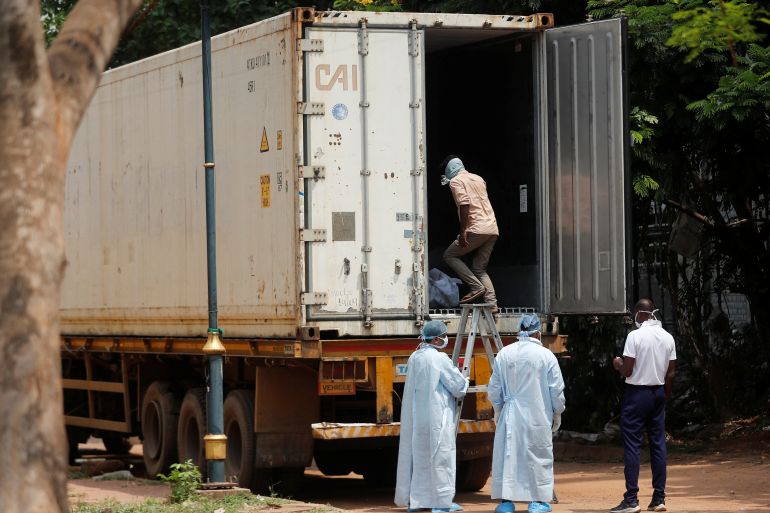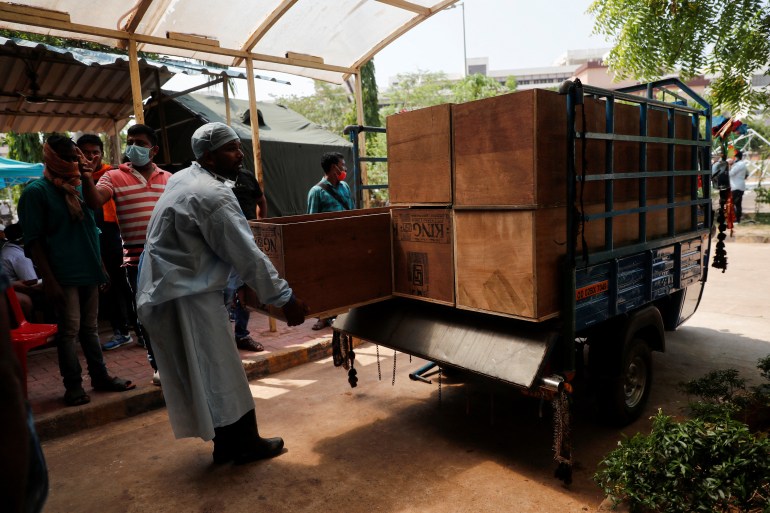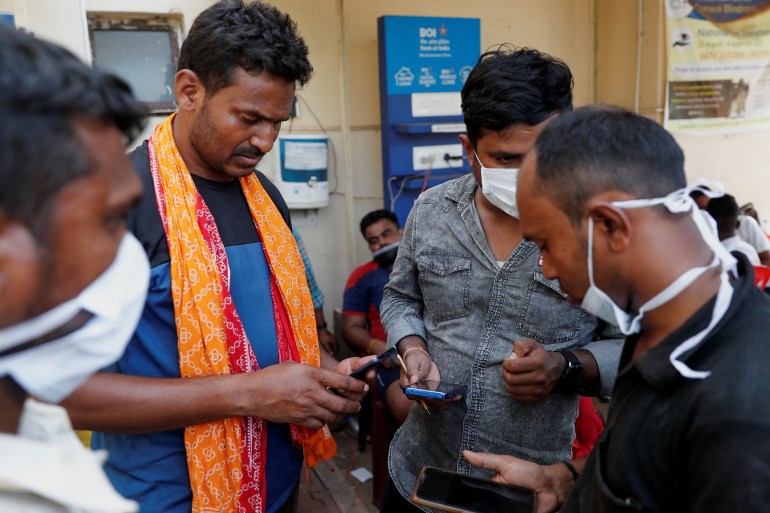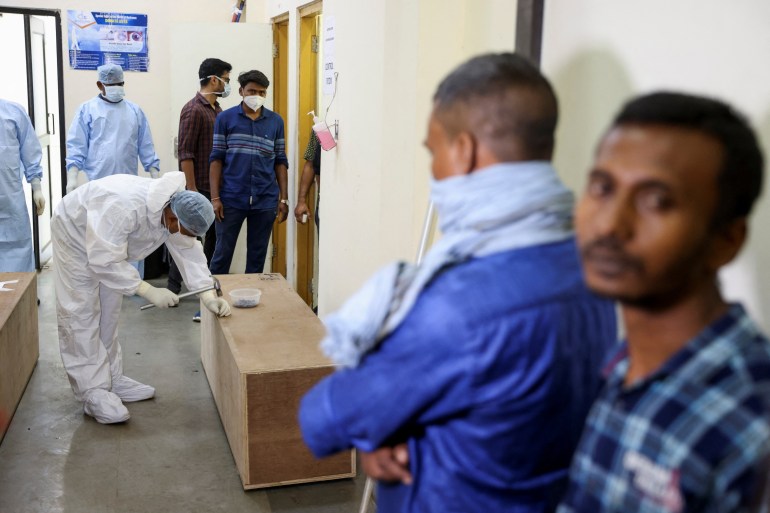Dozens of bodies remain unclaimed days after India train crash
Authorities are trying to source iced containers to help preserve bodies as they issue fervent appeals to families to identify the dead.

Indian authorities have made fervent appeals to families to help identify dozens of unclaimed bodies kept in hospitals and mortuaries, days after 275 people were killed in the country’s deadliest rail crash in at least two decades.
The disaster struck on Friday when a passenger train hit a stationary freight train, jumped the tracks and hit another passenger train passing in the opposite direction near the district of Balasore in the eastern state of Odisha.
Keep reading
list of 4 itemsSignalling error blamed for India train crash that killed 288
‘Second lease of life’ say survivors of deadly India train crash
They wait for bodies of loved ones killed in India train crash
Till Monday evening, about 100 bodies were yet to be identified, a senior state health department official told the Reuters news agency.

Al Jazeera’s Um-e-Kulsoom, reporting from state capital Bhubaneswar, said there was a desperate situation at a medical facility in the city where most of the bodies were brought in after the train accident.
“If they [relatives] find a body, they think it is a matter of relief because it is a closure,” she said. “They can take the body home and give a final sendoff. For others, the search continues.”
Bijay Kumar Mohapatra, health director of Odisha, said authorities were trying to source iced containers to help preserve the bodies.
“Unless they are identified, a post-mortem cannot be done,” Mohapatra said, explaining that under Odisha state regulations, no autopsy can be conducted on an unclaimed body until 96 hours have passed.
Family hopes DNA test will help
Mohammed Imam Ul Haq has been struggling to find his missing brother and to claim his nephew’s body from the many corpses lying in Bhubaneswar hospitals.
Haq’s brother and two nephews were on the Coromandel Express, one of the three trains that crashed into each other in Balasore.
For Haq, from the eastern state of Bihar, the tragedy is two-fold. As his brother remains missing, a body he says is that of his 12-year-old nephew is also being claimed by another family.
“We are left with no option but to do a DNA test to determine whose body it is. The whole process takes really long. I hope we can claim the body soon,” a distraught Haq told Reuters at the All India Institute of Medical Sciences (AIIMS), Bhubaneswar’s biggest hospital.
“We are Muslim, boys are circumcised at birth; however, the body is in no condition to even check that,” Haq said of the remains he believes are of his nephew.
Authorities had taken DNA samples from all the dead bodies in hospitals across the state, senior police official Prateek Singh told reporters on Tuesday.
“In cases where there are multiple claimants, we have taken DNA samples from family members and we will preserve the bodies until the DNA matches,” Singh said.

The trains had passengers from several states and officials from seven states – Assam, Bihar, Jharkhand, West Bengal, Tamil Nadu, Karnataka and Andhra Pradesh – were in Balasore to help people claim the bodies of family members and take them home, Singh said.
Meanwhile, desperate families scoured hospitals and mortuaries in search of their loved ones, but the gruesome condition of the corpses made identification a challenge.
At Bhubaneswar’s AIIMS, large television screens displayed pictures of the dead to help desperate families who are scouring hospitals and mortuaries for friends and relatives.
A detailed list was made of distinguishing features for each body, but relatives could first view photographs, however gruesome, to identify missing loved ones, a senior police official told Reuters.

The trains had passengers from several states and officials from seven states were in Balasore to help people claim the bodies and take them home, the police official added.
A forlorn Parbati Hembrum, from West Bengal’s Hooghly district, stood near the help desk at the Balasore railway station, looking for information on her son Gopal.
The 20-year-old had travelled in the Coromandel Express with three others from their village but while the other three returned home, Gopal has not.
Tarapada Tudu, standing with his relative Hembrum, said Gopal was admitted to Balasore hospital after the accident but when they looked for him there, the hospital said he was released the same day after being treated for minor injuries.
But, filled with dread over the lack of contact with Gopal, Tudu said he and Hembrum will travel to Bhubaneswar to look for him among the dead.
A team from the federal Central Bureau of Investigation (CBI) reached the site on Tuesday to start a probe into the cause of the disaster while a separate inquiry by the railway’s safety commission started on Monday.
“The CBI team is on the ground, picking up information on what happened, how it happened and who is behind it,” Al Jazeera’s Um-e-Kulsoom said.
A signal failure was the likely cause of the disaster, according to preliminary findings, which indicated the Coromandel Express, heading southbound to Chennai from Kolkata, moved off the main line and entered a loop track – a side track used to park trains – at 128kmph (80 mph), crashing into the stationary freight train.
That crash caused the engine and the first four or five coaches of the Coromandel Express to jump the tracks, topple and hit the last two coaches of the Yesvantpur-Howrah train heading in the opposite direction at 126kmph (79 mph) on the second main track.
Following non-stop efforts to rescue survivors and clear and repair the track, trains resumed running over that section of the line on Sunday night.